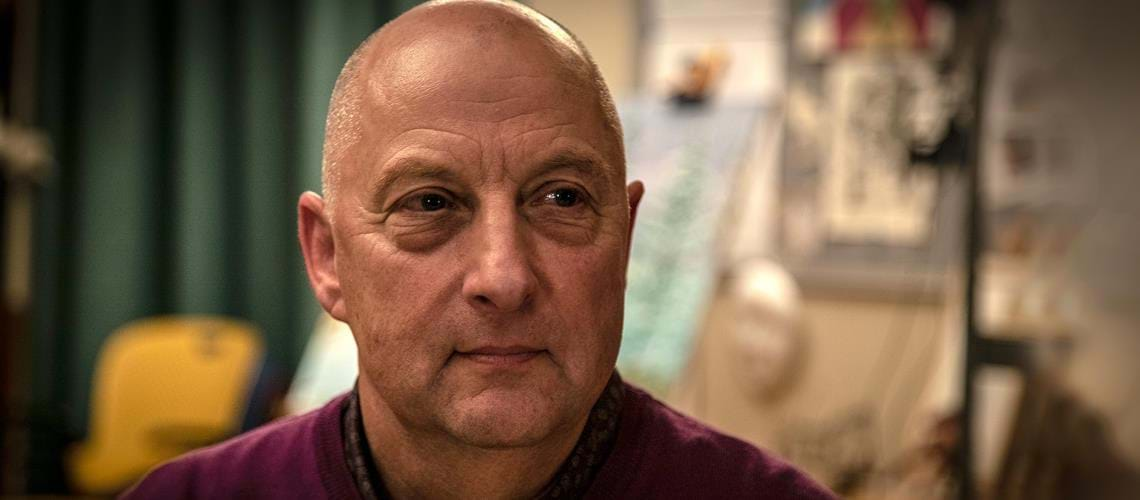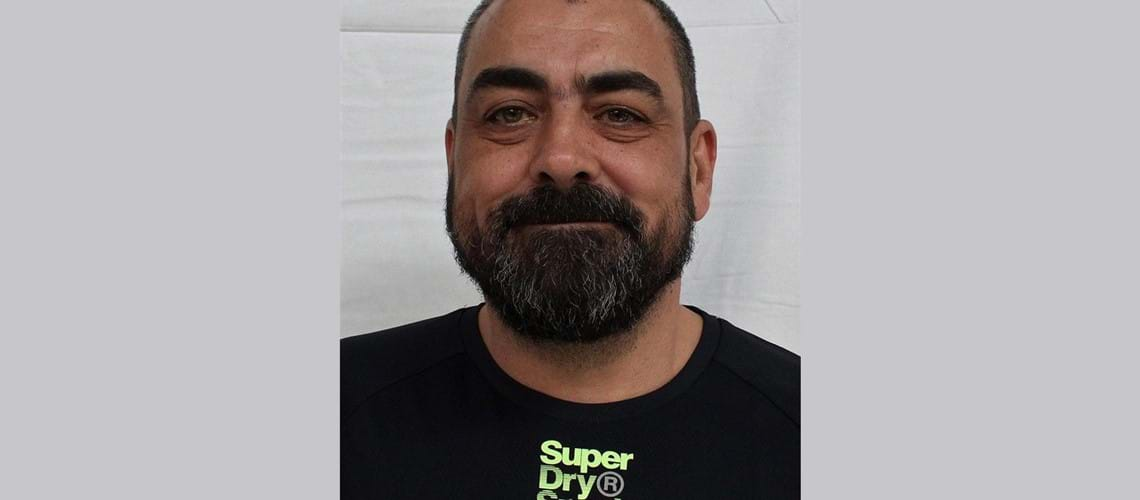
A 34-year wait for help: “The change to my life has been phenomenal”
Nick Martin suffered with undiagnosed Post Traumatic Stress Disorder (PTSD) for 34 years before asking for support from Help for Heroes. When he did, a new world opened to him, leading him to wonder what else he might have achieved if he’d sought support sooner.
Nick struggled to cope with the
Nick suffered a fractured skull, broken jaw and dislocated shoulder as a result of the blast. And whilst his physical wounds would in time heal, the damage done to his mental health lasts to this day.
On returning from the conflict, Nick continued to serve with the Royal Navy for four more years. But the impact of what he had been through would quickly shape the course his life would take. Nick made the decision to leave the Armed Forces in 1986, worried that he was missing out on watching his young children grow up. When he returned to civilian life, he struggled to adapt.
“I started to feel guilty about those that hadn’t returned from the Falklands and wouldn’t experience getting married, having children or moving on with their careers. The guilt I felt about surviving got heavier and heavier and eventually, I started punishing myself.”
“I’d go for a run and push myself until my trainers squelched with blood, or I’d put on the heaviest backpack I could find and walk until I was exhausted. I took
Unbeknown to Nick at the time, he was suffering
“If I was awake for 16 hours then that was 15 hours too long. I was spending more and more time on my own too, I didn’t want to socialise. There was a longing for something to change but I didn’t know how to.”
Then five years ago, Nick suffered a massive heart attack, almost dying at the roadside. Realising that he’d come so close to losing his life jolted Nick into realising that he needed to act. A friend recommended that he speak to a counsellor. His diagnosis was made and his recovery journey began.
“Talking to that counsellor was difficult. I was ashamed of what I was saying and deeply embarrassed to talk and to break down in front of him. There’s a notion that those who have served must be pretty tough but we’re not tough, we’re just trained.”
As part of his treatment, Nick was referred to Help for Heroes and invited to join the Band of Brothers Fellowship. Immediately, Nick felt the benefits of being around like-minded people, other Veterans who had also suffered injury or illness as a result of service.
“Joining the Fellowship was like instantly having a family of thousands of brothers and sisters, people who understand each other because of what they’ve been through.”
Nick initially found being around others daunting, but with the right support, he signed up to become a member of the Invictus Games Choir and took up sports and art classes as part of his recovery programme. Steadily, his confidence grew.
“I began pushing myself to do things that I’d never have had the confidence to do before. Now, I’ve sung in front of thousand with the choir and I’ve discovered that art makes me feel so calm.”
Life for Nick is now looking much more positive. Last year, he showcased his artwork at the first ever Help for Heroes Creative Force exhibition and took part in the Sydney Invictus Games.
“PTSD is a nasty condition that eats away at you without you knowing it. It took me 34 years to even know that’s what I had and see that it was ruining my life.
“My recovery isn’t complete, there are still things I need and have to do but I’m in the right place now to get on and do them. I do
“But the change to my life has been phenomenal. I’m no longer stuck in a rut, I’m looking forward, and that’s exciting.”
According to a recent survey commissioned by Help for Heroes, 30% of Veterans with psychological wounds say they have never reached out for support. For those that have, it takes an average of four years before they ask for help. Help them to come forward sooner and help us to call time on mental health stigma at CutTheClock.com.
Figures, unless otherwise stated, are from YouGov Plc.
Help for Heroes helped 4,194 additional wounded, injured and sick individuals between Aug 2017 and Aug 2018 with their physical and mental wellbeing. Of these, 881 accessed support from our Psychological Wellbeing service.
Outcomes show that depression, anxiety and anger symptoms all reduced, and anger management improved,
All of the courses and activities delivered by Help for Heroes are designed to benefit the psychological and physical wellbeing of wounded, injured and sick Veterans and Service Personnel.
The campaign was created by Help for Heroes in collaboration with McCann London and McCann Enterprise.
Find out more here: https://www.helpforheroes.org.uk/



